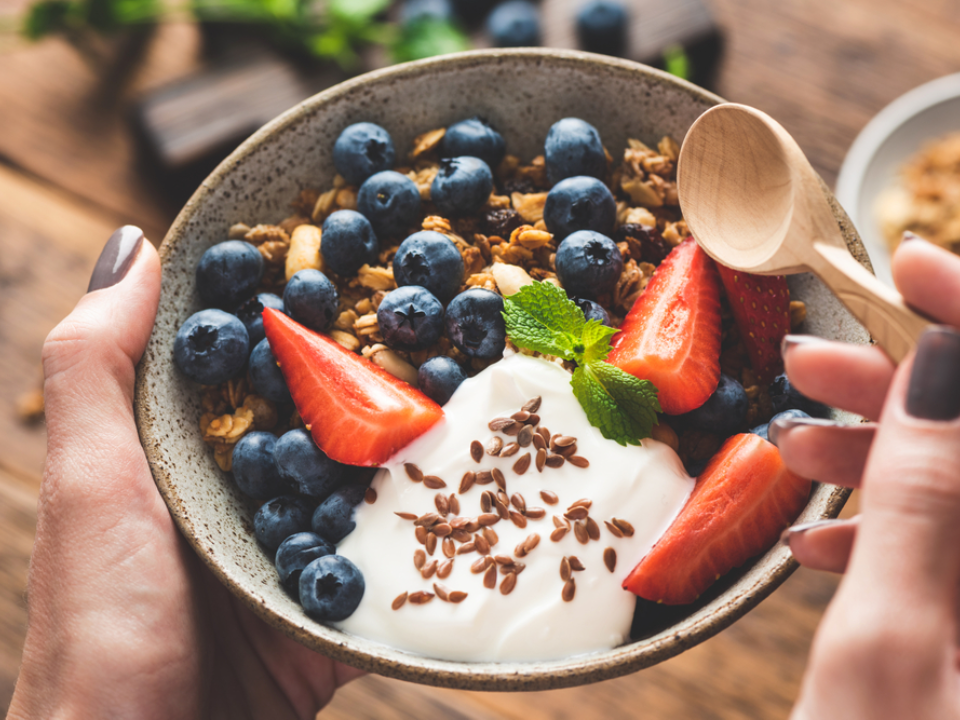18 Simple Tips for Eating Clean and Living Healthy
Eating clean and living healthy is all about making simple choices that support your overall well-being. It does not require drastic changes but rather small, consistent habits that add up over time. By focusing on whole foods, staying hydrated, and practicing mindful eating, you can improve your energy levels and feel better every day. Avoiding processed foods and cutting back on sugar are great first steps toward a healthier lifestyle. Eating clean is not just about what you eat but how you approach food and health. With a little effort and the right mindset, you can make lasting changes that benefit both your body and mind.
This post may contain affiliate links, which helps keep this content free. Please read our disclosure for more info.
Choose Whole Foods Over Processed Ones

Opting for whole foods is a simple and effective way to clean up your diet. Whole foods, like fruits, vegetables, grains, and lean proteins, provide your body with essential nutrients and energy. These foods are minimally processed and retain more of their natural vitamins, minerals, and fiber compared to processed foods.
Processed foods often contain added sugars, unhealthy fats, and excess sodium, which can negatively impact your health. By replacing these with whole, unprocessed options, you can improve digestion, regulate blood sugar, and maintain a healthy weight. It is important to focus on freshness and variety to ensure you get the most out of your meals.
Incorporate More Vegetables into Your Meals

Vegetables are packed with nutrients, fiber, and antioxidants that support overall health. Adding a variety of vegetables to your diet can help you meet your daily nutritional needs while also promoting good digestion. Whether you eat them raw, steamed, or sautéed, vegetables are low in calories but high in essential vitamins and minerals.
Aim to fill half of your plate with vegetables at every meal. Doing so not only helps increase your fiber intake but also helps maintain healthy blood pressure, boost immunity, and support weight management. Keep a range of colorful veggies on hand to enjoy different textures and flavors while reaping the benefits of their nutrients.
Drink Plenty of Water

Staying hydrated is one of the easiest ways to support your health. Water is essential for many of your body’s functions, including digestion, circulation, and temperature regulation. It is important to drink water throughout the day to avoid dehydration and support your body’s natural processes.
Incorporating enough water into your daily routine can also help control appetite, improve skin health, and maintain energy levels. You can add a few slices of lemon, cucumber, or mint to make your water more enjoyable without adding extra calories or sugar. Drinking water regularly supports overall wellness and keeps you feeling refreshed.
Limit Sugar Intake

Excessive sugar consumption can lead to various health issues, including weight gain, increased risk of heart disease, and poor blood sugar control. Reducing your intake of sugary foods and drinks is an important step in eating clean and living healthy. Instead of sugary snacks, choose whole fruits or unsweetened options that provide natural sweetness without the added sugars.
Pay attention to hidden sugars in foods like sauces, dressings, and packaged snacks. Opting for natural sweeteners like honey or maple syrup in moderation can help you satisfy your sweet cravings while still maintaining a healthier lifestyle. Cutting back on sugar is one of the simplest ways to improve your diet and support long-term health.
Eat Balanced Meals

A well-balanced meal includes a combination of macronutrients such as protein, healthy fats, and carbohydrates. This balance helps keep you satisfied and provides your body with the energy it needs throughout the day. For example, pairing a lean protein source like chicken or tofu with vegetables and whole grains can create a nutritious and filling meal.
Eating balanced meals prevents blood sugar spikes and keeps you energized. It also supports muscle repair and promotes healthy brain function. By focusing on the nutritional quality of your meals, you can improve overall well-being and reduce the likelihood of overindulging in unhealthy foods.
Choose Healthy Fats

Not all fats are bad for your health. Healthy fats, found in foods like avocados, nuts, seeds, and olive oil, are essential for heart health, brain function, and hormone regulation. Including moderate amounts of these fats in your diet can improve cholesterol levels and support long-term health.
Avoid trans fats and saturated fats, which can increase the risk of heart disease. Instead, opt for sources of unsaturated fats that provide essential fatty acids and vitamins. Incorporating healthy fats into your meals can help you feel satisfied and prevent the cravings for less nutritious options.
Practice Portion Control

Eating clean does not mean depriving yourself; it is about mindful eating. Practicing portion control can help you enjoy your favorite foods without overindulging. Using smaller plates, listening to your body’s hunger cues, and paying attention to serving sizes can help you manage your calorie intake effectively.
Eating smaller portions allows your body to properly digest food and prevents overeating. It also helps maintain a healthy weight and ensures that you are getting a balanced intake of nutrients. By being mindful of portion sizes, you can still enjoy a variety of foods while making healthier choices.
Avoid Eating Late at Night

Eating late at night can disrupt your digestive system and sleep cycle. Late-night meals are often higher in calories and may lead to weight gain if not properly balanced. To support better digestion and quality sleep, try to finish eating at least two to three hours before going to bed.
Having your last meal earlier in the evening allows your body to properly digest food and reduces the likelihood of heartburn or indigestion. It also gives your body time to metabolize food before resting. Establishing a routine of eating earlier can lead to better digestion and improve overall health.
Include Fiber-Rich Foods

Fiber plays a key role in digestion, helping to keep things moving in the gastrointestinal system. Foods like whole grains, beans, fruits, and vegetables are excellent sources of fiber. Including these foods in your diet helps prevent constipation, regulate blood sugar, and support heart health.
A fiber-rich diet promotes feelings of fullness, which can reduce overall calorie intake. It also plays a role in maintaining healthy cholesterol levels and supporting a healthy weight. Incorporating more fiber into your meals is a simple and effective way to improve your digestive health and overall wellness.
Cook More at Home

Preparing meals at home gives you complete control over the ingredients you use. Cooking at home allows you to avoid added preservatives, unhealthy fats, and high levels of sugar found in many restaurant dishes. Plus, it gives you the opportunity to experiment with clean ingredients and enjoy healthier versions of your favorite meals.
Home cooking can also save you money and help you develop a better relationship with food. By planning your meals and preparing them at home, you can ensure that you are eating fresh, clean, and nutritious food that supports your health goals. Making the effort to cook more often will pay off in the long run.
Eat Mindfully

Mindful eating encourages you to pay attention to your food and how it makes you feel. Slowing down and savoring each bite can help you enjoy your meals more and prevent overeating. Being mindful while eating also allows you to recognize hunger cues and satisfaction signals, so you are more likely to eat the right amount for your body’s needs.
By avoiding distractions such as television or smartphones during meals, you can focus on the flavors, textures, and aromas of your food. This practice helps improve digestion and can prevent mindless snacking later in the day. Eating mindfully also fosters a healthy relationship with food, allowing you to feel more in control of your choices.
Avoid Skipping Meals

Skipping meals, especially breakfast, can lead to overeating later in the day. When you skip meals, your body may go into starvation mode, slowing down metabolism and leading to energy crashes. It is important to maintain regular meal times to keep your metabolism functioning efficiently and to avoid feelings of hunger that could lead to unhealthy food choices.
Eating regularly helps stabilize blood sugar levels, boosts energy, and prevents overeating later. Aim to have balanced meals at consistent times throughout the day to support your body’s nutritional needs. Skipping meals may seem tempting, but regular eating can contribute to long-term health and wellness.
Limit Alcohol Consumption

Excessive alcohol consumption can interfere with your ability to eat clean and live healthy. Alcohol is high in calories and can lead to weight gain if consumed in large amounts. In addition, it can disrupt digestion and sleep patterns, making it harder for your body to recover and perform at its best.
Moderation is key when it comes to alcohol. By limiting your intake, you can reduce the negative impact on your health and make room for more nutritious choices. If you choose to drink, opt for lower-calorie options such as light beer or wine, and try to drink water in between alcoholic beverages to stay hydrated.
Plan Your Meals

Meal planning helps you stay organized and ensures that you have clean and healthy food available throughout the week. When you plan your meals in advance, you are less likely to grab unhealthy options on the go. It also helps you stick to your health goals and avoid the temptation of processed foods.
Taking time to plan your meals gives you the opportunity to incorporate a variety of fruits, vegetables, and whole grains into your diet. It also allows you to prepare and portion your meals in advance, saving time and reducing food waste. With proper planning, eating clean can be a hassle-free and enjoyable experience.
Choose Healthy Snacks

Healthy snacks can help curb hunger between meals and provide a nutritious boost of energy. Instead of reaching for chips or sugary treats, choose snacks that are rich in protein, healthy fats, and fiber. Options like mixed nuts, Greek yogurt, or sliced veggies with hummus are great choices that can keep you satisfied and energized.
Having healthy snacks on hand prevents you from overeating during meals or making poor food choices. Snacking on wholesome options will keep your metabolism stable and support your nutritional needs throughout the day. By planning ahead and choosing clean, nutritious snacks, you can maintain your energy levels and stay on track with your health goals.
Prioritize Sleep

Good sleep is essential for overall health and well-being. Sleep allows your body to recover, repair cells, and regulate hormones. Poor sleep can lead to increased cravings for unhealthy foods, reduced energy, and impaired decision-making.
Prioritize quality sleep by creating a calming bedtime routine and ensuring you get 7-9 hours of sleep each night. Avoid caffeine and screen time before bed to improve sleep quality. Proper rest is just as important as a clean diet when it comes to living a healthy lifestyle.
Incorporate Healthy Herbs and Spices

Herbs and spices add flavor and nutrition to your meals without extra calories. Ingredients like turmeric, ginger, garlic, and cinnamon not only enhance the taste of food but also provide antioxidant and anti-inflammatory benefits. These natural ingredients can support your immune system, digestion, and overall health.
Using herbs and spices in your meals is an easy way to elevate the flavor profile while reaping the health benefits. Experiment with different spices in your cooking to create diverse and exciting meals that nourish your body. Adding these simple ingredients can help you stay on track with your clean eating journey.
Focus on Plant-Based Proteins

Plant-based proteins, such as beans, lentils, tofu, and quinoa, are excellent alternatives to animal-based proteins. These sources of protein are rich in fiber, vitamins, and minerals that support overall health. Incorporating more plant-based proteins into your diet can improve digestion, regulate blood sugar, and support heart health.
Plant-based proteins are not only nutritious but also more sustainable for the environment. By reducing your consumption of meat and incorporating more plant-based meals, you can contribute to better health and environmental sustainability. Eating a variety of plant-based proteins can help you meet your daily nutritional needs while promoting a cleaner diet.
This article originally appeared on Avocadu.
